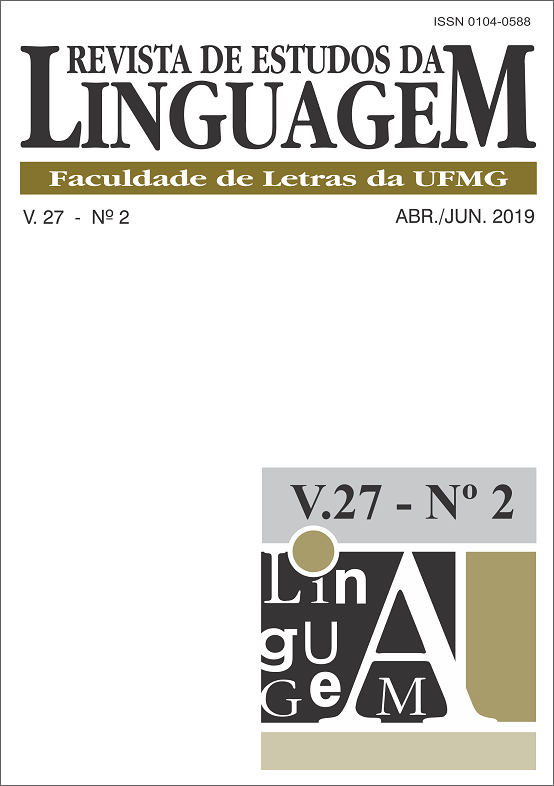O constituinte-QU in situ e os efeitos de Common Ground no português brasileiro infantil / The WH-Constituent in situ and the effects of Common Ground in Child Brazilian Portuguese
DOI:
https://doi.org/10.17851/2237-2083.27.2.839-884Palavras-chave:
qu-in situ, interrogativas-qu, common ground, português brasileiro, wh-in situ, wh-questions, Brazilian Portuguese.Resumo
Resumo: O presente trabalho concentra-se nos efeitos do Common Ground na produção de perguntas com constituinte-QU in situ no português brasileiro, tendo em vista esta ser uma língua de movimento-QU aparentemente opcional. Neste artigo, procura-se discutir, com base em investigação empírica, como o conceito pragmático de fundo comum influencia na realização de tais perguntas, levando em consideração o comportamento de outras línguas que permitem tanto o QU-movido quanto o in situ, como o francês, o espanhol e o português europeu. Para tanto, ao fim deste artigo, será apresentado um novo experimento de aquisição que eliciou perguntas-QU em um contexto de pressuposição enriquecida. Os resultados sugerem que há, de fato, uma associação entre o QU-in situ e o contexto pragmático, tanto nos dados adultos (grupo controle) quanto nos dados infantis.
Palavras-chave: qu-in situ; interrogativas-qu; common ground; português brasileiro.
Abstract: The present paper focuses on the Common Ground effects on the production of wh-in situ in Brazilian Portuguese, bearing in mind that this is a language with apparently optional wh-movement. In this study, we aim to discuss, based on empirical research, how the pragmatic concept of Common Ground play a role on the production of such questions, taking into account the behavior of other languages that allow wh-moved and wh-in situ, such as French, Spanish and European Portuguese. For this purpose, at the end of this paper, we present a new acquisition experiment that elicits wh-questions in a context with enriched presupposition. The results suggest that there is, in fact, an association between wh-in situ and the pragmatic context, both in adult (control group) data and in child’s data.
Keywords: wh-in situ; wh-questions; common ground; Brazilian Portuguese.





